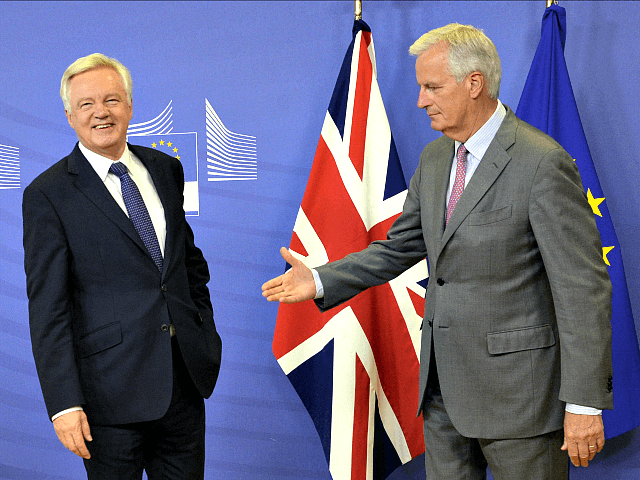The European Union (EU) will allow the UK to change its mind on a clean Brexit and stay inside the bloc’s Single Market, tied to many of its rules, for years after the Brexit date.
The Commission’s chief negotiator, Michel Barnier, told reporters on Thursday the UK would be welcomed back into the market during the planned so-called Brexit “transition period”, up until December 2021.
The UK is set to formally leave the bloc in March 2019 but will remain in the Single Market and Customs Union for the 21-month transition, with mass migration continuing uncontrolled as it is now.
The bloc has previously stated the UK cannot stay in the Single Market after Brexit and end open borders, and Mr. Barnier said Prime Minister Theresa May would have to drop her “red lines” on migration to do so.
“If Britain decided to change its red lines, then we’d also change our positions,” he told German newspaper Sueddeutsche Zeitung on Wednesday.
“[The UK] is leaving the EU on 30th of March next year. But they are not leaving the Single Market or the Customs Union until 31 December 2020,” he added.
“As long as they have not left, during the transition period, anything is still possible.”
Speaking to the European Parliament on the same day, Mr. Barnier said the UK would have to stay permanently tied to many EU regulations just to secure a trade deal with the EU after Brexit.
“There will be no ambitious partnership without guarantees on fair competition, social standards, tax dumping and not least environmental standards,” he said.
Surrender to Brussels Agreed: Britain Obeys all EU Laws, no Control of Fisheries, Open Borders to 2020 https://t.co/FZTm4NGcWW
— Breitbart London (@BreitbartLondon) March 19, 2018
After the transition period, Mrs. May has insisted the UK will be outside the market and union as part of her red lines, so the nation can take back control of its own immigration and trade policy.
However, during the Brexit negotiations, Mrs. May has already bowed to many EU demands.
Just last month, she called for the UK to “remain in step” with many of the bloc’s rules and regulations and said the EU would have a say in setting migration policy after Brexit.
She had initially wanted the cut-off date for new migrants being given full rights to be the 29th of March last year, when Article 50 was triggered, to stop a last-minute rush of new arrivals.
However, she and the EU backtracked in January this year, agreeing that migrants coming during the transition to be able to stay indefinitely.
She also “betrayed” the UK’s fishing industry, by agreeing to hand control of the nation’s fishing waters to the bloc for the duration of the transition period.
WATCH: Appeaser Theresa Refuses to Say She Backs Brexit https://t.co/wf9vpGQDvG
— Breitbart London (@BreitbartLondon) April 10, 2018

COMMENTS
Please let us know if you're having issues with commenting.